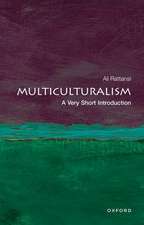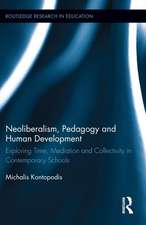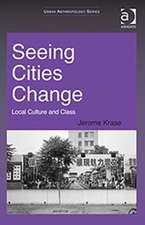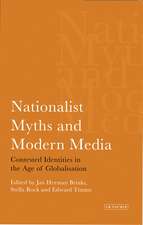The Politics of Nation-Building: Making Co-Nationals, Refugees, and Minorities: Problems of International Politics
Autor Harris Mylonasen Limba Engleză Paperback – 17 feb 2013
| Toate formatele și edițiile | Preț | Express |
|---|---|---|
| Paperback (1) | 205.41 lei 6-8 săpt. | |
| Cambridge University Press – 17 feb 2013 | 205.41 lei 6-8 săpt. | |
| Hardback (1) | 549.11 lei 6-8 săpt. | |
| Cambridge University Press – 17 feb 2013 | 549.11 lei 6-8 săpt. |
Din seria Problems of International Politics
-
 Preț: 238.60 lei
Preț: 238.60 lei -
 Preț: 200.13 lei
Preț: 200.13 lei -
 Preț: 227.61 lei
Preț: 227.61 lei -
 Preț: 224.24 lei
Preț: 224.24 lei -
 Preț: 159.18 lei
Preț: 159.18 lei -
 Preț: 251.27 lei
Preț: 251.27 lei -
 Preț: 252.21 lei
Preț: 252.21 lei -
 Preț: 247.41 lei
Preț: 247.41 lei -
 Preț: 229.56 lei
Preț: 229.56 lei -
 Preț: 197.90 lei
Preț: 197.90 lei -
 Preț: 332.68 lei
Preț: 332.68 lei -
 Preț: 319.99 lei
Preț: 319.99 lei -
 Preț: 283.41 lei
Preț: 283.41 lei -
 Preț: 282.48 lei
Preț: 282.48 lei -
 Preț: 226.17 lei
Preț: 226.17 lei - 11%
 Preț: 697.28 lei
Preț: 697.28 lei
Preț: 205.41 lei
Nou
Puncte Express: 308
Preț estimativ în valută:
39.31€ • 40.55$ • 33.27£
39.31€ • 40.55$ • 33.27£
Carte tipărită la comandă
Livrare economică 04-18 martie
Preluare comenzi: 021 569.72.76
Specificații
ISBN-13: 9781107661998
ISBN-10: 1107661994
Pagini: 280
Ilustrații: 20 b/w illus. 11 maps 20 tables
Dimensiuni: 155 x 234 x 18 mm
Greutate: 0.41 kg
Ediția:New.
Editura: Cambridge University Press
Colecția Cambridge University Press
Seria Problems of International Politics
Locul publicării:New York, United States
ISBN-10: 1107661994
Pagini: 280
Ilustrații: 20 b/w illus. 11 maps 20 tables
Dimensiuni: 155 x 234 x 18 mm
Greutate: 0.41 kg
Ediția:New.
Editura: Cambridge University Press
Colecția Cambridge University Press
Seria Problems of International Politics
Locul publicării:New York, United States
Cuprins
1. Introduction; Part I. Theory: 2. The international politics of assimilation, accommodation, and exclusion; Part II. Empirical Evidence: 3. Why the Balkans?; 4. Cross-national variation: nation-building in post-World War I Balkans; 5. Odd cases: analysis of outliers; 6. Subnational variation: Greek nation-building in western Macedonia, 1916–20; 7. Temporal variation: Serbian nation-building toward Albanians, 1878–1941; 8. Application of the theory beyond the Balkans; 9. Conclusion.
Recenzii
'Mylonas deftly combines quantitative analysis of cross-national data with an in-depth study of policies toward non-core groups in Greek Macedonia and provides impressive evidence to support his theoretical propositions. Summing up: recommended. Graduate, research, and professional collections.' A. Paczynska, Choice
'Mylonas highlights a hitherto understudied aspect of minority policy making in the Balkans: whether newly nationalizing states tolerated, assimilated, or forcibly removed ethnic minorities from their territories crucially depended on whether or not these minorities were supported by other states and whether these other states were allies or enemies. Combining broad statistical analysis with detailed archival research, the book puts the international aspects of domestic nation-building into sharp relief.' Andreas Wimmer, Princeton University
'There is much to praise in this book. To begin with, Mylonas is one of those rare scholars who adopt a sophisticated positivist methodology that combines large analysis with a detailed knowledge of (some) historical cases obtained through patient archival research. Second, while much scholarship discusses two policy options (inclusion or exclusion), Mylonas interestingly broadens the analysis to include three policies - assimilation, accommodation and exclusion - producing, respectively, co-nationals, minorities and refugees. And, third, in an age of liberal interventionism Mylonas advances sober and thoughtful recommendations on how the international community may be able to diminish the recurrence of crimes of mass atrocity by intervening less, not more.' Roberto Belloni, Buchbesprechungen
'Mylonas highlights a hitherto understudied aspect of minority policy making in the Balkans: whether newly nationalizing states tolerated, assimilated, or forcibly removed ethnic minorities from their territories crucially depended on whether or not these minorities were supported by other states and whether these other states were allies or enemies. Combining broad statistical analysis with detailed archival research, the book puts the international aspects of domestic nation-building into sharp relief.' Andreas Wimmer, Princeton University
'There is much to praise in this book. To begin with, Mylonas is one of those rare scholars who adopt a sophisticated positivist methodology that combines large analysis with a detailed knowledge of (some) historical cases obtained through patient archival research. Second, while much scholarship discusses two policy options (inclusion or exclusion), Mylonas interestingly broadens the analysis to include three policies - assimilation, accommodation and exclusion - producing, respectively, co-nationals, minorities and refugees. And, third, in an age of liberal interventionism Mylonas advances sober and thoughtful recommendations on how the international community may be able to diminish the recurrence of crimes of mass atrocity by intervening less, not more.' Roberto Belloni, Buchbesprechungen
Notă biografică
Descriere
Mylonas argues that foreign policy goals and international relations drives a state's assimilation or exclusion policies towards an ethnic group.














